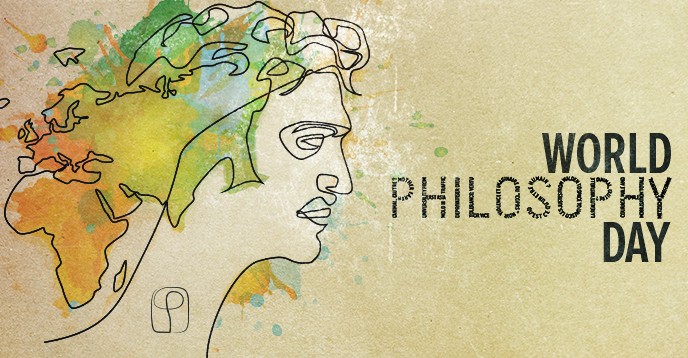 Sir: The 16th of November 2023 is UN-recognised World Philosophy Day. Philosophy is the love of wisdom that enables a systematic study of general and fundamental questions concerning topics of human living or existence.
Sir: The 16th of November 2023 is UN-recognised World Philosophy Day. Philosophy is the love of wisdom that enables a systematic study of general and fundamental questions concerning topics of human living or existence.
• Philo: loving, fond of, tending to, derived from the Greek word Philos.
• Sophy is derived from the Greek word Sofia, or Sophia, meaning wisdom.
• Wisdom is knowledge, skill, teaching related to everyday life, sound judgment, and prudence.
The term ‘philosopher’ is widely romanticised.
Perhaps because much study was given to the lives and times of ancient philosophers. There was the fifth-century founder of Western philosophy, Socrates, and his student Plato. Aristotle, the student of Plato and teacher of Alexander the Great, as examples.
Curious as about the documentation on the world’s philosophers, I came upon this 410 philosophers’ roll call on the website: thefamouspeople.com/philosophers. It is a list detailing the names, dates of birth, and brief bios of philosophers from ancient and modern history, as well as contemporary times.
Some of the world’s famous philosophers include the already-mentioned Aristotle, Socrates, and Plato. Others include, Friedrich Nietzsche, Marcus Aurelius, Confucius, Immanuel Kant, Voltaire, René Déscartes (Father of Modern Philosophy), John Locke, Samuel Coleridge, Thales, Dwight L. Moody, and Sigmund Freud.
Included in that list are living contemporary philosophers. These include Roger Penrose (b.1931), Noam Chomsky (b.1928), Peter Singer (b.1946), Christina Hoff Sommers (b.1950), Martha Nussbaum (b.1947), William Lane Craig (b.1949), Judith Butler (b.1956), Bruno Latour (b.1947), Douglas Hofstadter (b.1944), and Sean M. Carroll (b.1966).
In that list also, three people of African descent are mentioned. These are, Cornel West (b.1953), Kwame Anthony Appiah (b.1954), and Howard Thurman (1899–1981).
The youngest on the list is Nick Bostrom (b.1973), a Swedish philosopher and founding director of the Future of Humanity Institute at Oxford University.
The big question at this 2023 UN World Philosophy Day, is, “What is the future of humanity, and what are the contemporary philosophers giving as answers or navigation of thought?”
Five major areas that have and are troubling humanity, and have caused great shifts include:
The COVID-19 pandemic and its upturn in the world. Is it over, or is it mutated and waiting?
• The climate change crisis and the need for concerted global defence of the earth’s fragile ecosystem.
• The trilemma of energy security, energy poverty, and energy transition. This, within the context of energy availability, affordability, reliability, and abundance. Another layer is the tug between renewable energy and fossil fuels, and the balance required from energy transition fuels like natural gas.
• The nature of geopolitical crisis and ethical considerations for truth.
• The global economy and the question of, ‘What is in it for them vs. What is in it for me?’ A typical example is the surge of artificial intelligence and robotic appeal. Having a handbrake on existential risks while advocating for transhumanism.
There would be many schools of thought on how philosophy should be approached in contemporary life. What we may all agree on is that there is so much going on in our world today that philosophy may have taken the backseat to allow survival to take the steering.
Titi Horsfall, a novelist, poet, is an author of historical fiction and documentation.






